Introduction
Are Guinea Pigs Nocturnal: Guinea pigs, those charming and endearing rodents, have captivated the hearts of pet enthusiasts worldwide with their gentle demeanor and unmistakable squeaks. As many individuals embark on the delightful journey of caring for these small, furry creatures, they often find themselves pondering . Understanding the daily rhythms and habits of our beloved guinea pigs is crucial for providing them with the best possible care and ensuring their overall well-being. Nocturnality, a term commonly associated with certain animals, refers to the behavior of being active primarily during the night and resting during the day. It is a key aspect of an animal’s lifestyle and can vary significantly among different species.
Guinea pigs, their activity patterns do not align with those of true nocturnal creatures like owls or bats. Instead, these charming rodents exhibit a crepuscular behavior, which means they are most active during the dawn and dusk hours. This distinctive characteristic sets pigs nails them apart from strictly diurnal (daytime-active) or nocturnal animals, emphasizing their adaptability to different light conditions. This intriguing behavior stems from the guinea pig’s natural habitat and evolutionary history. Originating from the Andes Mountains of South America, guinea pigs’ ancestors developed a crepuscular lifestyle to navigate the diverse environmental challenges of their native region.
In the venture out during the twilight hours when the temperatures were milder, and predators were less active, allowing them to forage for food while minimizing their risk of becoming prey. This crepuscular behavior may seem somewhat counterintuitive for those accustomed to pets with strict diurnal or nocturnal routines, it is essential to recognize and respect these natural inclinations when caring for guinea pigs. Understanding their activity patterns can help pet owners create a suitable and enriching environment that accommodates their pets’ needs, ensuring a happy and healthy life for these adorable creatures.
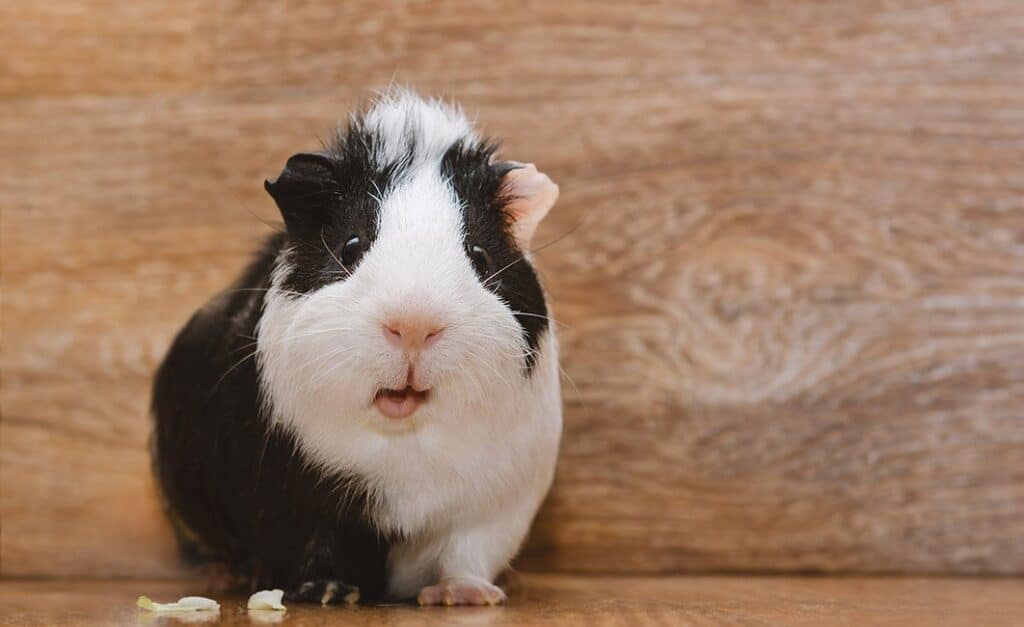
Do guinea pigs sleep all night?
Do guinea pigs sleep at night? Yes, but guinea pigs aren’t strictly diurnal or nocturnal. These flighty little floofers take short power naps during the night and also during the day.
First things first, guinea pigs are not nocturnal animals. Unlike hamsters or rats, they don’t have a preference for being active during the night. Instead, guinea pigs are crepuscular, which means they are most active during dawn and dusk. This behavior is thought to be an adaptation to avoid predators in their natural habitat.
On average, guinea pigs sleep for about 4 to 6 hours a day. However, this sleep isn’t continuous. Instead, they take numerous short naps throughout both day and night. These naps typically last only a few minutes to half an hour, and they have their eyes half-open even while sleeping.
Guinea pigs have an interesting napping pattern. During their waking hours, they might take brief power naps to recharge their energy. These naps are often so short that they can be easily mistaken for them just resting. Guinea pigs do sleep more deeply at night, but even then, their sleep isn’t as deep as that of some other animals.
Do guinea pigs stay awake at night?
The answer is no, guinea pigs are not nocturnal. Guinea pigs choose to sleep during both day and night. Guinea pigs don’t usually have regular sleeping habits in general. They tend to sleep for short periods of time, kind of like short naps.
Contrary to the belief that guinea pigs are nocturnal animals, they are actually diurnal. This means that they are most active during the day, particularly during the early morning and late afternoon. This behavior aligns with their natural habitat, as they come from regions where daytime activity is more advantageous for finding food and avoiding predators.
Guinea pigs have distinct sleep patterns that differ from humans and many other animals. They do not experience prolonged, continuous periods of sleep like humans. Instead, guinea pigs take numerous short naps throughout the day and night. These naps typically last anywhere from a few minutes to half an hour, and they may appear to be resting with their eyes half-open even sleeping.
Guinea pigs are social animals, and the presence of their cage mates can influence their sleeping patterns. It’s common for guinea pigs sharing an enclosure to synchronize their sleep schedules to some extent. This synchronized sleep can make them feel more secure and comfortable in their environment.
Do guinea pigs sleep in the dark or light?
They could be up at two in the morning running around with each other, or asleep at eight in the morning and up again an hour later. It’s safe to say that guinea pigs enjoy the dark at least, but we’d even go as far as to say they prefer the dark!
Guinea pigs are diurnal creatures, which means they are most active during the daytime. Their natural habitat and evolutionary adaptation have favored daytime activity to forage for food and avoid predators. Unlike some nocturnal animals, guinea pigs do not rely on the cover of darkness to stay active or rest.
Guinea pigs are diurnal, they don’t require extreme conditions of either darkness or bright light to sleep comfortably. In fact, they can adapt to various light levels for rest. Guinea pigs can nap with their eyes half-open during the day, and they also sleep more deeply at night when it’s darker.
Guinea pigs, those delightful and sociable rodents, have become popular pets due to their gentle nature and manageable care requirements. As responsible pet owners, it’s crucial to cater to their needs, including their sleeping preferences
Do guinea pigs recognize their owners?
Yes! Guinea pigs are smart creatures that are easy to develop a bond with. A guinea pig will recognise their owner as the caregiver who gives them food and love. A sure sign a guinea pig recognises you is that they feel safe around you.
Guinea pigs are highly social animals that thrive on companionship. In their natural habitat of the Andes Mountains in South America, they live in groups, forming strong bonds with their fellow cavies. This social nature extends to their interactions with humans.
Guinea pigs have well-developed senses, particularly their acute sense of smell and hearing. They can easily identify and differentiate between various scents and sounds in their environment, including those of their human caregivers. This heightened sensory perception allows them to become familiar with the individuals who provide for their needs.
Over time, guinea pigs can learn to associate their human caregivers with positive experiences, such as being fed, groomed, or receiving attention and affection. As a result, they may start to recognize their owners based on these associations.
Guinea pigs communicate through a range of vocalizations, like squeaks, purrs, and chirps, as well as body language cues. Some guinea pigs may respond differently to the presence of their owners, showing signs of excitement, relaxation, or even seeking attention when they recognize familiar human voices and faces.
Do guinea pigs need baths?
Bathing your guinea pig is not only essential to his well-being, it is also an excellent way for you to build a trusting relationship. You should bath your guinea pig at least every two months, or more often if his coat is looking particularly oily.
Guinea pigs are fastidious groomers by nature. They engage in self-grooming regularly, using their tiny front teeth to clean their fur, paws, and face. This natural grooming behavior helps them maintain a clean and healthy coat.
In addition to self-grooming, guinea pigs often engage in social grooming when they live in pairs or groups. They help each other by nibbling or licking their cage mates, reinforcing social bonds while keeping each other clean.
In general, guinea pigs do not need regular baths like some other animals, such as dogs. Bathing them too frequently can strip their skin of essential oils and disrupt their natural grooming routine. In most cases, guinea pigs are self-sufficient when it comes to cleanliness.
Do guinea pigs smell?
In a nutshell, guinea pigs shouldn’t smell. If they are giving off an unpleasant odour, it’s usually a sign that the cage isn’t clean, their diet is wrong, they’re sick, or they’re struggling to groom themselves. Also, boars may smell more than sows because of an oily buildup around the grease gland.
Guinea pigs, those charming and affectionate rodents, have captured the hearts of many as popular pets. However, one concern that often comes up for potential and current guinea pig owners is whether these adorable creatures produce unpleasant odors.
In general, guinea pigs are relatively odor-free compared to many other pets. They are known for their cleanliness and do not possess strong, offensive body odors. This is due to their natural grooming habits and well-maintained fur.
Guinea pigs are social animals that communicate with each other through scent marking. They may release subtle scents through scent glands located on their faces, chins, and anogenital regions. These scent markings help establish territory and social hierarchy among guinea pigs. These markings are part of their natural behavior, they are not typically strong or offensive to humans.
Why does my guinea pig bite me?
As already mentioned, guinea pigs are not usually aggressive, but they will bite if they feel threatened, bullied, mishandled or are ill. Of course, all piggies are different, and while one guinea pig might like being cuddled, another won’t.
Guinea pigs are naturally skittish animals, and they may bite if they feel threatened or frightened. Sudden movements, loud noises, or unfamiliar environments can trigger fear or anxiety in your pet guinea pig, leading to defensive biting.
Guinea pigs are territorial creatures, and they may bite to assert dominance or protect their space. This can occur when introducing a new guinea pig to an existing one or when they feel their living area is being invaded.
Guinea pigs may bite if they are hungry or experiencing discomfort, such as a health issue or dental problems. Hunger-induced biting can happen when they associate your hand with food, leading them to nip you.
Guinea pigs use their mouths to explore their surroundings, which may include nibbling on objects, including your fingers. This behavior is usually not aggressive, it can sometimes lead to unintentional biting if they get carried away.
Do guinea pigs get lonely?
Guinea pigs are highly social – in the wild they live in close family groups of 5-10 guinea pigs, though several groups may live in close proximity to form a colony. Guinea pigs get lonely and shouldn’t be kept alone – they’re happiest in pairs.
Natural Herd Animals: Guinea pigs are native to the Andes Mountains in South America, where they live in herds. Their natural behavior is deeply rooted in social interactions within a group.
Social Bonds: Guinea pigs form strong social bonds with their fellow cavies. They engage in a variety of social activities, including grooming, vocalizations, and cuddling, to maintain their bonds and communicate with each other.
Vocalization: Guinea pigs are known for their various vocalizations, including chirping, purring, and wheeking. These sounds are not only used for communication but also serve to reinforce social connections within the group.
Preventing Loneliness: Guinea pigs are prone to loneliness when kept alone. They thrive in the company of other guinea pigs, and solitary confinement can lead to feelings of loneliness and depression.
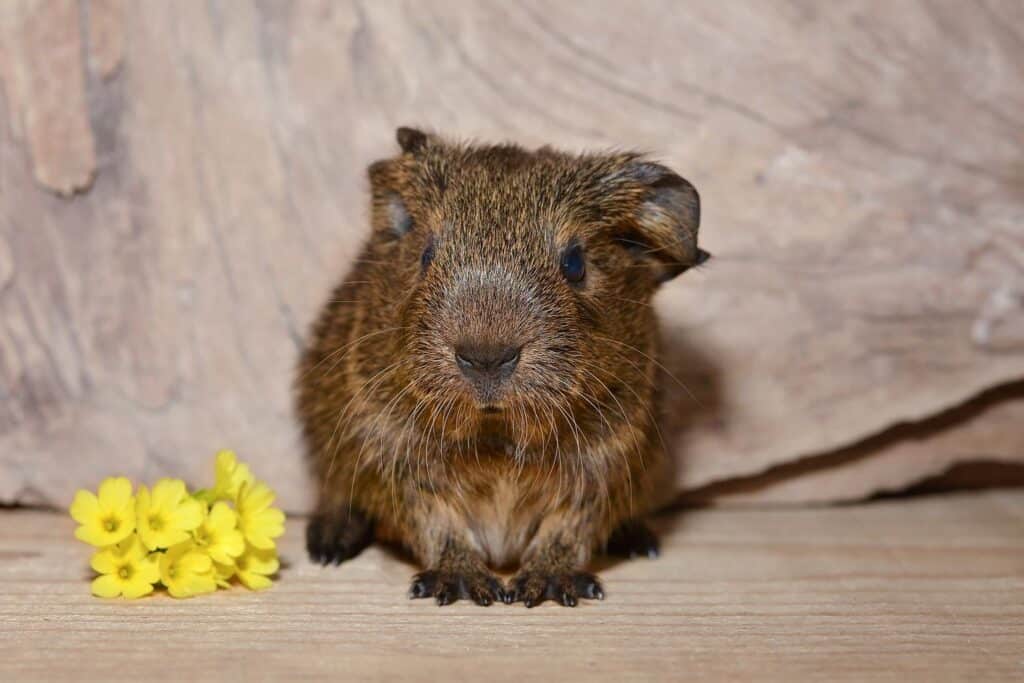
Conclusion
Guinea pigs are nocturnal has been explored, revealing the fascinating crepuscular behavior that characterizes these beloved rodents. Guinea pigs do not fit the strict definition of nocturnal animals, their crepuscular tendencies, rooted in their evolutionary history and natural habitat, set them apart with a unique activity pattern that demands our attention and understanding. Understanding the crepuscular nature of guinea pigs is crucial for providing them with the best possible care. By recognizing that they are most active during dawn and dusk, we can adapt their living conditions and daily routines to better suit their needs and preferences.
One of takeaways from this exploration is the creation of creating a suitable environment for guinea pigs. This means offering a safe and comfortable living space with appropriate lighting conditions. Guinea pigs thrive in moderate, indirect light, so pet owners should ensure that their habitat allows for periods of natural light during the day and a more subdued, ambient light in the evening. Additionally, respecting their activity pattern is essential for their mental and physical well-being. Guinea pigs need opportunities for exercise, social interaction, and access to fresh food and water during their active hours. Providing these essentials ensures that they can engage in their natural behaviors, which include socializing, exploring, and foraging.
Guinea pigs’ crepuscular behavior is a captivating aspect of their nature that sets them apart from strictly nocturnal or diurnal animals. This unique lifestyle, deeply rooted in their evolutionary history, reflects their adaptability to their native environment and the need to avoid predators foraging for food. As responsible pet owners, it is our duty to embrace and respect these natural inclinations by creating an environment that accommodates their needs, ensuring that our guinea pig companions live healthy, happy lives.

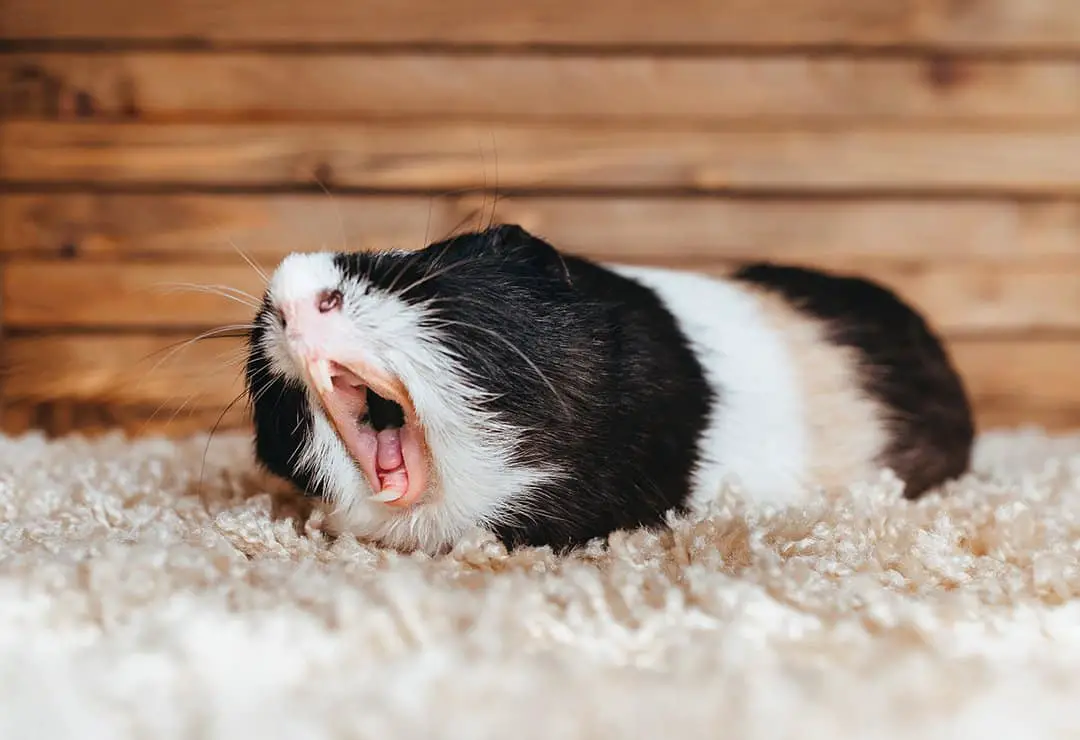
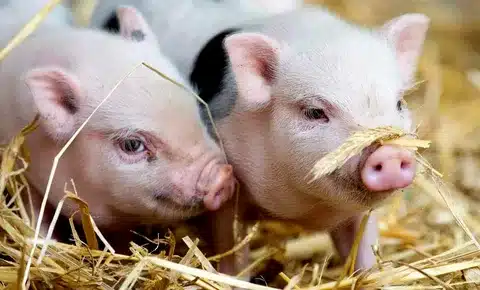
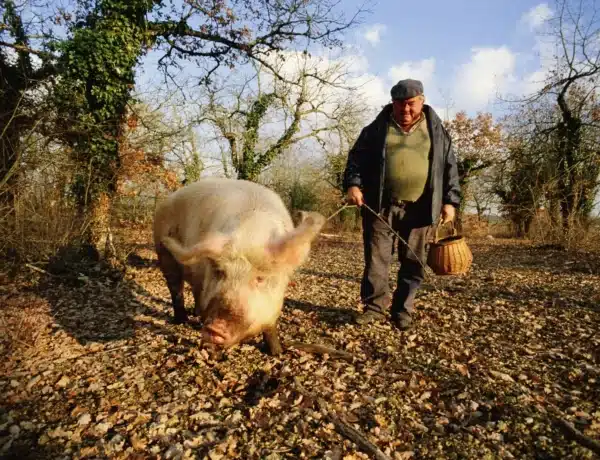
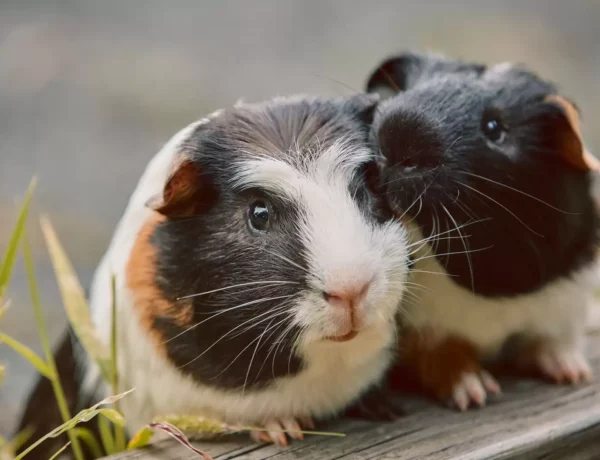
No Comments